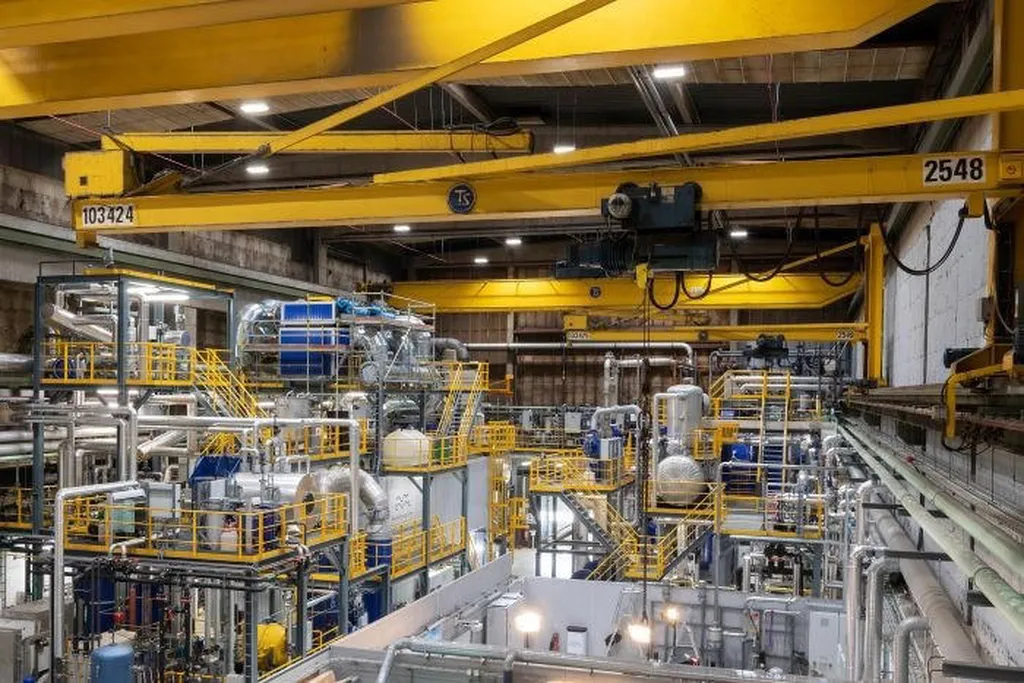Alfa Laval has just dropped a bombshell in the maritime decarbonization game, securing an order for the world’s first marine boiler system designed to safely incinerate ammonia emissions. This isn’t just a step forward; it’s a giant leap, and it’s happening on a fleet of four ammonia dual-fuel vessels set to hit the waves in 2027-2028. Let’s dive in and see what this means for the future of shipping.
Ammonia is emerging as a key player in the zero-carbon fuel arena, but it’s not your average fuel. It’s toxic and requires careful handling, especially when it comes to purge gas and other waste gases. Alfa Laval, with its knack for innovation, has stepped up to the plate, securing an order to deliver a marine boiler system that acts as an Ammonia Release Mitigation System (ARMS). This system is set to be installed on four 45,000 cubic meter multi-gas carriers for Trafigura, a global commodities company. These vessels are designed to transport LPG and ammonia, and they’re set to be built by HD Hyundai Mipo in South Korea.
This project is a collaborative effort, with industry heavyweights like engine designer WinGD and shipyard HD Hyundai Mipo joining forces with Alfa Laval. It’s a testament to how the industry is coming together to tackle the challenges of decarbonization. “Our efforts with alternative fuels demonstrate that Alfa Laval is not just adapting to the shift toward these fuels, but is actively shaping it through our technological expertise and vast experience in marine equipment,” says Anders Lindmark, Business Unit President Heat & Gas Systems, Alfa Laval. It’s clear that Alfa Laval isn’t just keeping up with the changes; they’re driving them.
The boiler system is designed to do more than just generate steam. It’s a multi-purpose solution that can efficiently incinerate gaseous ammonia and ammonia-nitrogen mixtures produced by various onboard systems. This means shipowners can save on costs and space, as they won’t need additional equipment to manage ammonia purge emissions, boil-off gas, and tank emptying operations. It’s a win-win for both the environment and operational efficiency.
But what does this mean for the future of the maritime industry? Well, it’s a game-changer. This system could set a new standard for ammonia-powered vessels, showing that ammonia can be used safely while optimizing vessel design and operational efficiency. It’s a significant step towards making ammonia a viable marine fuel, and it’s a clear indication that the industry is serious about decarbonization.
Moreover, this project highlights the importance of collaboration in the maritime industry. It’s not just about one company pushing the boundaries; it’s about industry players coming together to tackle the challenges of decarbonization. This collaborative spirit is what will drive the industry forward, and it’s something we should all be paying attention to.
So, buckle up, folks. The maritime industry is in for a wild ride, and it’s all about decarbonization. With innovations like Alfa Laval’s ammonia-incinerating boiler system, we’re not just talking about a greener future; we’re building it. And it’s not just about the environment; it’s about operational efficiency, safety, and cost savings. It’s about shaping the future of shipping, and it’s happening right now. So, let’s keep our eyes on the horizon and see where this journey takes us. It’s going to be one heck of a ride.

